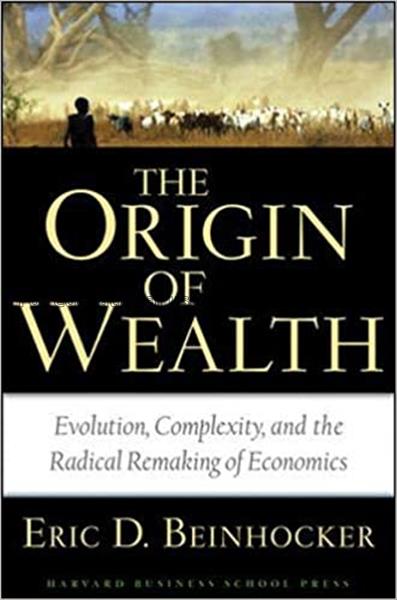The origin of wealth : evolution, complexity, and the radical remaking of economics / Eric D. Beinhocker
Author : Beinhocker, Eric D

Accounting for the creation of wealth has long challenged humanity's best minds. For business readers and academics, Beinhocker is a zealous and able guide to the emerging economic paradigm shift he calls the "Complexity Economics revolution." A fellow of the economic think tank McKinsey Global Institute, he rejects traditional economic theory, based on a physics model of closed systems, in which change is an external disruptive shock. Instead, he outlines an open, adaptive system with interlocking networks that change organically, reflecting the interaction of technological innovation, social development and business practice. Wealth is created to the degree that this interaction decreases entropy in favor of "fit order" that meets human needs, desires and preferences. Beinhocker is sufficiently comfortable with this evolutionary model to advocate a comprehensive redesigning of institutions and society to facilitate it. He argues for corporate policies that favor many small risks over a few big ones and recommends restructuring financial theory to favor growth and endurance rather than short-term gains. Though he asserts that complexity economics can reduce political partisanship and increase social capital, Beinhocker stops short of saying that it cures sexual dysfunction. By the end, the concept emerges as a great idea that the author tries to make a panacea. (June 1)
| Barcode | Call No. | Volume | Status | Due Date | Total Queue | |
|---|---|---|---|---|---|---|
| 1010075044 | EC00057 | On Closed Stack | 0 | Please Login |
Related Book